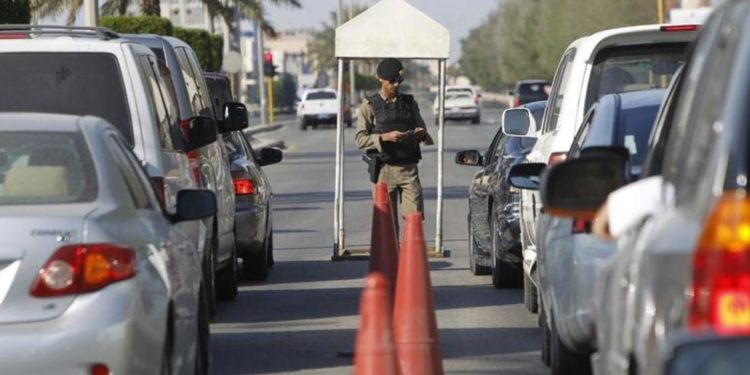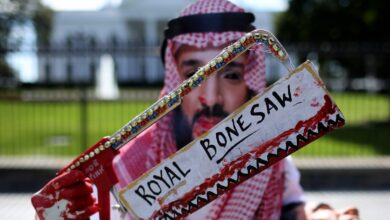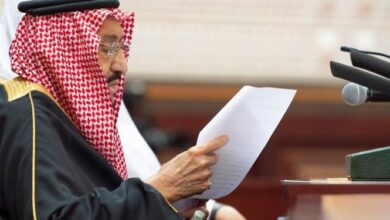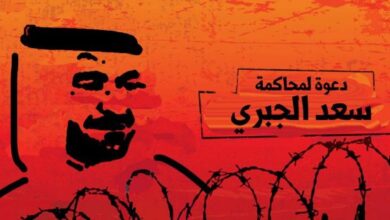Five youths arrested facing death sentences in Saudi

The European Saudi Human Rights Organization revealed that five young men are at risk of execution in the Kingdom of Saudi Arabia, and the charges against them are due to the period when they were children, against the background of the Qatif events that rocked the Kingdom in 2011.
The non-governmental organization that is active in Germany said in a statement, that the prosecutor of the Saudi regime demanded that the maximum punishment be imposed on these young people knowing that Riyadh “carried out at least ten death sentences against children, all of whom did not have a fair trial”.
The organization took care of this issue when defense responses were submitted to the prosecution demanding the death penalty in a session held on January 19, 2020, according to the organization’s vice president, Adel Al-Saeed, who explained that in the kingdom “there are no pleadings in the accepted manner (in the courts), but rather It is only by submitting written responses.
The organization’s statement stated that, “in the context of the Kingdom’s expansion in the use of the death penalty, the Public Prosecution demanded the establishment of a punishment for the punishment of five children (Ahmed Abdul Wahid Al Faraj – Ali Muhammad Al Butti – Muhammad Hussain Al Nimer – Ali Hassan Al Faraj – Muhammad Issam Al Faraj), within the framework of a collective, non-public trial of eight persons in the Specialized Criminal Court.
These young men, all of whom come from the Qatif region in the east of the Kingdom, were arrested on 29 June 2017 while they were on a religious visit to Medina, without a court order against them. Their ages were between 15-21 years, ”according to the organization’s human rights statement.
And the law for stopping the harba, according to explanations on the Arab Lawyers Forum, is resorted to in the event of “major crimes, according to Resolution No. (1245) based on the text of Article (112) of the Saudi Penal Procedures System.
It applies especially when “committing any crime by stealing money, assaulting the bloodshed, bloodshed or intimidating frightening in order to subjugate and prevail, whether in arms…”. This law imposes severe penalties for “killing, cutting or stoning”.
The Public Prosecution Office directed these people, according to the organization, a series of charges, “relating to participating in demonstrations, calling for protests, funeral of the victims of excessive power violence, covering up wanted persons, and providing them with medicines.
Some of them also face the charge of shooting at the security men without being in charge of any clarification on how and when the shooting occurred or what effects have resulted from it, “charges related to the Qatif events in the east of the kingdom that the region has lived for years.
“The child Muhammad Essam Al-Faraj (born February 25, 2002) is charged with participating in the funeral of a victim of extrajudicial killings, which have been carried out by special forces in Qatif Governorate since 2012,” says the statement, when he was nine years old.
Ahmed Al-Faraj (born in March 22, 1999) and Ali Al-Butti (born in April 14, 1999) face charges related to two wanted persons when they were 13 years old, and Mohammed Al-Nimer (February 17, born in 1998) faces charges of participating in the funeral of a victim of extrajudicial killings when he was 14 years old.
“Since their arrest more than two years ago, they have experienced terrible conditions, including long-term detention before being brought to court, solitary confinement, denying them access to a lawyer, and subjecting them to torture and other degrading and inhuman treatment.”
In a similar case, the organization stated that at the present time, three other youths arrested as children could be executed: Ali Al-Nimer, Abdullah Al-Zahir and Dawood Al-Marhoun, “at any moment, after their death sentences were ratified, on the background of charges related to the demonstrations.”
Since King Salman became the king in January 2015, “Saudi Arabia has implemented at least ten death sentences against children, all of whom have not had a fair trial, and most of them have extracted confessions under torture,” according to the organization’s statement.
The organization states that in 2019, “the kingdom reached a new record in the execution of executions compared to 88 years ago, until the end of October, it carried out 176 executions…”
The organization believes that “limited, intermittent, or weak reactions from multiple parties around the world encouraged Saudi Arabia to continue this approach against children…”.
The Saudi regime has implemented scores of death sentences against a number of prisoners, the majority of whom are Shi’a, in recent years, against the background of the events that rocked the Qatif region. These provisions did not exclude persons arrested at childhood.
In the spring of 2013, the courts began hearing cases of detainees in connection with the Qatif protests. Dozens of defendants were sentenced to prison terms of up to 30 years.
Qatif witnessed demonstrations coinciding with the Bahrain protests, which quickly took an upward trend in 2012, which led to many deaths. The oil-rich region is the main center of Shiites, who make up about 10 percent of the roughly 20 million Saudis.





